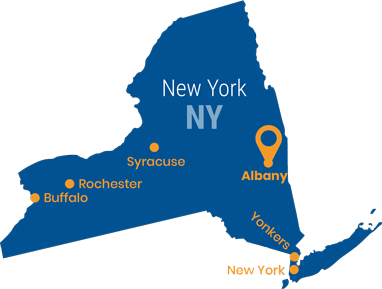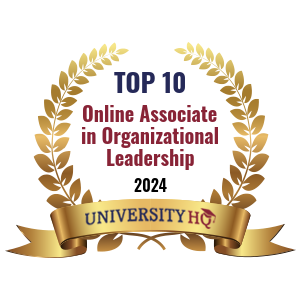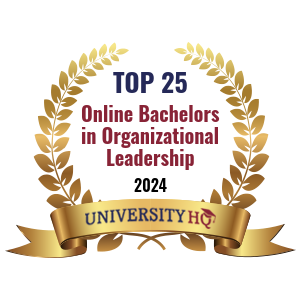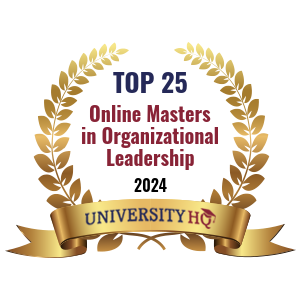What is Organizational Leadership?
An organizational leader, also known as a leadership professional, is an individual who possesses the skills, knowledge, and experience to effectively lead and manage teams within an organization. They are responsible for setting the vision, goals, and strategies of the organization, as well as guiding and motivating employees to achieve them.
An organizational leader plays a critical role in ensuring the success and growth of any company. They must foster positive work environments by cultivating collaboration and teamwork while offering guidance and support to employees. Furthermore, organizational leaders play a crucial role in decision-making processes, problem solving techniques and making necessary organizational changes within an organization.
Organizational leaders possess a variety of essential qualities and skills that distinguish them from their peers, including strong communication abilities, excellent interpersonal relations skills, an ability to inspire and motivate others, adaptability, flexibility and conflict resolution skills that enable them to successfully manage disputes constructively. Furthermore, organizational leaders often possess a strategic mindset which enables them to think critically and make sound decisions even in complex situations.
Gaining practical leadership experience is equally essential to formal education, and can be gained through internships, volunteer work, or part-time positions that involve leading and managing others. Furthermore, taking on leadership roles within student organizations, clubs, or community groups may provide invaluable experiences and opportunities for growth.
Continuing education and professional development are also crucial for organizational leaders. They must stay up to date with the latest industry trends, best practices, and leadership techniques. This can be achieved through attending seminars, conferences, workshops, and joining professional organizations related to leadership and management.

Featured Online Programs
Online Organizational Leadership Education in New York
New York, often referred to as the "Empire State", is not only known for its iconic landmarks and bustling city life but also for its thriving job market and opportunities for career growth. One field that has seen significant growth in recent years is organizational leadership.
Organizational leadership is a discipline that focuses on managing and leading teams within an organization to achieve its goals. Professionals in this field are responsible for creating effective strategies, making important decisions, and fostering a positive work environment. They play a crucial role in driving organizational success and ensuring that teams are working toward a common objective.
In NY, there is a strong demand for skilled organizational leaders across various industries. With a diverse and dynamic business landscape including finance, technology, healthcare, and media, the state offers ample opportunities for individuals looking to pursue a career in this field. Both large corporations and small businesses are actively seeking qualified professionals who can lead their teams to success.
When it comes to employment statistics, the exact number of individuals employed specifically in organizational leadership roles in NY can vary. However, according to the US Bureau of Labor Statistics (BLS), as of May 2020, there were approximately 45,510 management occupations in New York state. This category includes various managerial roles, including those in organizational leadership.
Furthermore, the demand for organizational leadership professionals in NY is expected to grow in the coming years. As businesses strive to stay competitive in a rapidly changing market, the need for effective leaders who can navigate challenges and drive innovation becomes paramount. This presents a promising outlook for individuals interested in pursuing a career in organizational leadership in the state.
Students interested in attending an accredited college to earn a baccalaureate degree or Master of Science in this field will have plenty of options all over the state, whether they want to attend school in a large city, large suburb, or in a more rural area. These options include Syracuse University, Fordham University, the CUNY university system, and more. After leaving one of these schools, they can find roles in non-profit organizations, government, and other workplace options.
Online Associates (AS)

An associate degree in organizational leadership can serve as a steppingstone toward a successful career in management. This type of organizational leadership program not only provides students with a strong foundation in leadership principles, but it also equips them with practical skills that can be applied across various industries. One of the distinct advantages of pursuing an associate degree is the flexibility it offers. Many colleges and universities offer online or part-time programs, allowing working professionals to enhance their leadership abilities while still maintaining their current job commitments and students who aren’t yet working to get into the work force in half the time of a bachelor’s degree.
In addition to studying core leadership concepts, students pursuing an associate degree in organizational leadership may have the opportunity to specialize in areas such as project management, human resources, or business ethics. However, it’s important to note that these specializations are more common at the bachelor’s or master’s level. These specialized courses provide valuable insights into specific aspects of organizational management and can open doors to specialized career paths. For example, those interested in human resources may develop skills in recruitment strategies, employee training and development, and conflict resolution – all essential skills for HR professionals seeking advancement opportunities within organizations. By choosing an area of specialization early on, graduates can enter the workforce better prepared for the demands of their chosen field.
Overall, an associate degree in organizational leadership provides individuals with the necessary knowledge and skills to thrive as effective leaders within their respective industries. Whether you are looking to advance your career or start on a new professional path altogether, this program can offer invaluable insights into effective leadership practices that will set you apart from your peers.
Online Bachelors (BS)

A bachelor's degree in organizational leadership offers a comprehensive understanding of leading and managing teams effectively in today's dynamic business environment. These programs equip students with the skills and knowledge needed to navigate the complexities of team dynamics, communication strategies, organizational change, and employee motivation. Curriculums often include courses on leadership theories, ethics, project management, decision-making processes, and strategic planning.
Earning a bachelor's degree in organizational leadership can open doors to various career paths across industries. Graduates are equipped with the competencies required to lead teams, drive organizational change initiatives, and make informed decisions based on critical analysis. Moreover, these organizational leadership degrees foster crucial soft skills like effective communication, problem-solving abilities, and interpersonal skills that are invaluable for success in professional settings. With an increasing demand for leaders who can adapt quickly to changing circumstances and successfully manage diverse workgroups, a bachelor's in this field is becoming more valuable than ever before. Whether aspiring to be a team leader or aiming for upper management positions, this program provides the foundation necessary for future success in leadership roles.
Find Your Online Organizational Leadership Program
Online Masters (MS)

A master's degree in organizational leadership goes beyond simply managing a team or supervising employees. These advanced degree programs are designed to provide students with the skills necessary to lead and navigate complex organizations, adapt to changing environments, and drive innovation. It combines elements of psychology, business strategy, communication, and ethics to create a comprehensive understanding of leadership principles.
One unique aspect of these degree programs is the emphasis on emotional intelligence and self-awareness as crucial components of effective leadership. Students are encouraged to delve deep into their own personal values, beliefs, and behaviors in order to better understand how they can authentically lead others. This focus on introspection and personal growth can set a master's degree in this field apart from other business-related programs.
Another exciting aspect of these degree programs is the opportunity for experiential learning through real-world application. Many programs include internships or practicum experiences where students can apply their knowledge and skills in a professional setting. This hands-on approach allows students to gain valuable practical experience while also networking with professionals in their chosen field.
Online Doctorate (PhD)
A PhD in organizational leadership is not just another degree, it’s a crucial step toward becoming a teacher or an effective way to enhance your credentials if you’re looking to be seen as an influential leader. This program goes beyond traditional management theories and focuses on developing skills that are directly applicable to the real world. Students in this program learn how to effectively lead teams, create positive change within organizations, and make strategic decisions that drive success.
One of the unique aspects of a PhD in organizational leadership is its interdisciplinary approach. This program draws from various fields such as psychology, sociology, and business - allowing students to gain a well-rounded understanding of leadership dynamics. By studying these different disciplines, students are able to better understand human behavior, motivation, and group dynamics – all key elements of effective leadership.
Earning a PhD in this field can also offer numerous career opportunities. Graduates can pursue academic roles as professors or researchers at universities around the world. Additionally, they can take on leadership positions in both public and private organizations, where they can apply their knowledge and skills to address complex organizational challenges.
Online Certifications
Organizational leadership certifications have gained significant popularity and recognition in recent years. As more companies prioritize effective management and leadership skills, professionals are seeking out these certifications to advance their careers. What makes these certifications so enticing? They not only enhance an individual's skill set, but also provide validation of their competency as leaders.
One key advantage of organizational leadership certifications is the flexibility they offer. Unlike traditional degree programs that require several years of commitment, certifications can be completed within a shorter time frame. This allows individuals to gain new knowledge and skills without sacrificing their current professional responsibilities.
Furthermore, earning a certification demonstrates a commitment to continuous learning and professional development. Employers value candidates who invest in their own growth and show a willingness to stay abreast of industry trends and best practices. Therefore, by obtaining an organizational leadership certification, professionals position themselves as desirable candidates for job promotions or new career opportunities.
In conclusion, organizational leadership certifications are becoming increasingly valuable in today's competitive job market. These credentials provide professionals with the opportunity to expand their knowledge base while showcasing their commitment to personal growth and development. As companies continue to prioritize effective leadership, individuals equipped with these certifications will stand out from the crowd, unlocking new avenues for success in their careers.
Become a Leader in New York
Being a leader in NY can be a daunting task but, with the right steps and strategies, you can pave your way to success. Whether you're an aspiring entrepreneur, a professional looking for advancement, or someone who wants to make a difference in the community, here are some steps on how to become an organizational leader.
-
Step 1: Define Your Goals and Values
Before embarking on your leadership journey, it's essential that you define your goals and values clearly. What goals do you wish to attain and which values do you prioritize? By having an outlined vision in place, this will serve as a roadmap for guiding actions and decisions along your journey.
-
Step 2: Continuous Learning and Skill Development
Effective leadership requires knowledge in your chosen field, so invest in your education by seeking opportunities for continuous learning and skill development. You can do this by attending seminars, workshops, and conferences related to your industry. You can also take courses and earn certifications that will enhance your leadership abilities.
-
Step 3: Build a Strong Network
NY is well known for its vast professional networks and opportunities. You can expand yours by attending industry events, joining professional organizations, connecting with like-minded people, and cultivating mentor relationships, as well as seeking advice from established leaders.
-
Step 4: Gain Experience and Prove Yourself
Experience is invaluable when it comes to leadership. Take every opportunity available to you, both within your organization or through volunteer work, to take on leadership roles that demonstrate your capabilities and have a lasting positive effect. Any new effort can improve your current resume. Take responsibility, show initiative, demonstrate your capability, and deliver results with positive impact.
Find Online Organizational Leadership Programs
What Can I Do with a Bachelor's in Organizational Leadership?
A bachelor's degree in organizational leadership can open an array of career options across industries. One potential path to explore is human resources management, where you could play a vital role in recruiting and retaining top talent for companies. Your understanding of organizational dynamics and leadership principles would make you an asset in developing employee training programs, implementing performance management systems, and ensuring compliance with labor laws.
Another avenue to consider is project management. With your knowledge of how teams operate and your ability to assess and resolve conflicts, you would be well-suited for overseeing complex projects from inception to completion. As a project manager, you would coordinate resources, manage timelines and budgets, all while maintaining strong communication channels within cross-functional teams.
Additionally, many graduates find success as consultants or advisors to organizations seeking guidance on strategic planning, change management initiatives, or talent development strategies. These roles would allow you to work with various clients across different industries, providing fresh insights and strategies based on your expertise in organizational leadership.
A bachelor's degree in organizational leadership can lead to diverse career paths. With the skills gained from this degree program, including effective communication techniques and the ability to lead and motivate others, you’ll have the opportunity to make a significant impact within organizations by facilitating growth and driving positive change.
Potential Careers for Organizational Leadership Graduates
-
Vice President:
A vice president is an essential executive role within an organization, responsible for providing strategic guidance and leadership across various departments. Working closely with other senior leaders, such as the president, to create and implement business strategies, drive growth, and meet organizational objectives is paramount.
Necessary Requirements:
- Bachelor's degree in business administration or a related field (Master's degree preferred)
- Proven experience as a senior executive or similar leadership role
- Strong strategic thinking abilities with a track record of driving organizational
Estimated Salary
- The median annual wage for top executives in the US in 2021 was $98,980
- The mean annual wage for chief executives in NY is $324,370
-
Legislator:
Legislators are charged with creating, debating and passing laws and policies within their specific jurisdiction. Legislators work in legislative bodies like parliaments, congresses, or local city councils to represent constituent needs as part of society as a whole. Thus, legislators play an essential role in shaping our political landscape while safeguarding community welfare.
Necessary Requirements:
- A strong commitment to public service and a genuine desire to improve the lives of others
- Excellent communication
Estimated Salary
- The mean annual wage for legislators in the US in 2021 was $71,100
- The mean annual wage for legislators in NY is $108,560
-
Information Systems Manager:
An information systems manager is accountable for overseeing the planning, implementation, and maintenance of an organization's information systems. They work closely with other departments to ensure these meet organizational needs while contributing to its overall success. In addition, this role manages a team of IT professionals, as well as protecting data security.
Necessary Requirements:
- Bachelor's degree in computer science, information systems management, or a related field
- Proven experience in information systems management, preferably in a managerial role
- Strong technical knowledge of hardware, software, networks, and databases
- Excellent problem-solving skills
Estimated Salary
- The median annual wage for computer and information systems managers in the US in 2021 was $159,010
- The mean annual wage for computer and information systems managers in NY is $217,630
-
Community Service Manager:
A community service manager plays a vital role in coordinating and managing various community service initiatives and programs. They are responsible for engaging with community members, organizations, and volunteers to create meaningful opportunities for service and make a positive impact on the local community.
Necessary Requirements:
- Bachelor's degree in social work, nonprofit management, or a related field (or equivalent experience)
- Proven experience in managing community service programs
Estimated Salary
- The median annual wage for social and community service managers in the US in 2021 was $74,000
- The mean annual wage for social and community service managers in NY is $96,060
-
Healthcare Administrator:
These administrators are responsible for overseeing and managing the day-to-day operations and management of a medical facility or department, playing an essential role in its proper running by implementing policies and procedures, as well as overseeing administrative tasks.
Necessary Requirements:
- Bachelor's degree in healthcare administration or a related field
- Proven experience in an administration role
- Strong organizational and leadership skills
- Excellent communication and interpersonal
Estimated Salary
- The median annual wage for medical and health services managers in the US in 2021 was $101,340
- The mean annual wage for medical and health services managers in NY is $171,620
-
Public Administrator or Relations Manager:
PR managers are accountable for devising and executing effective communication strategies that foster the positive image of their company including working closely with media outlets, stakeholders, and internal teams to manage and enhance reputation and public perception of the firm. When necessary they also handle crisis communications as spokesperson.
Necessary Requirements:
- Bachelor's degree in public relations, communications, or a related field
- Proven experience as a Public Relations Manager or similar role
- Excellent written and verbal communication skills
- Strong networking and relationship-building abilities
Estimated Salary
- The median annual wage for public relations and fundraising managers in the US in 2021 was $119,860
- The mean annual wage for public relations managers in New York is $183,160
-
Facilities Manager:
Facility managers are accountable for overseeing the operations and maintenance of a company's facilities, from managing physical environments to assuring safety and functionality of premises and overseeing maintenance activities and repairs. They help to create an optimal working environment.
Necessary Requirements:
- Bachelor's degree in facilities management, engineering, or a related field (or equivalent experience)
- Proven experience in facilities management or a similar role
Estimated Salary
- The mean annual wage for facilities managers in the US in 2021 was $105,970
- The mean annual wage for facilities managers in New York is $126,540
-
General and Operations Manager:
A general and operations manager is responsible for overseeing the day-to-day operations of a business or organization. They provide strategic direction, manage resources, and ensure efficiency and productivity across all departments.
Necessary Requirements:
- Bachelor's degree in business administration or a related field (Master's degree preferred)
- Proven experience in a managerial role, preferably in operations management
- Strong leadership skills with the ability to motivate teams and drive results
Estimated Salary
- The mean annual wage for general and operations managers in the US in 2021 was $122,860
- The mean annual wage for general and operations managers in New York is $157,260
Search All Programs
